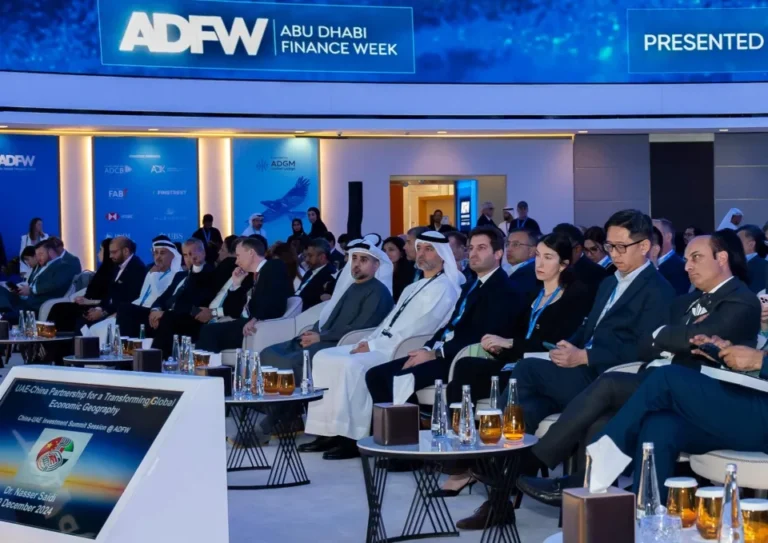Chinese businesses are deepening their presence in the United Arab Emirates (UAE), leveraging the Gulf nation’s strategic position as a “superconnector” between the East and West, according to Mohamed Al Marzooqi, CEO of HSBC UAE. This shift marks a transition from traditional trade sectors to innovative industries like renewable energy, electric vehicles, and consumer tech.
Transforming Economic Partnerships
Speaking during Abu Dhabi Finance Week, Al Marzooqi noted a growing presence of Chinese firms in UAE infrastructure projects and an expansion into emerging industries such as hydrogen, ammonia, and carbon capture technologies. “Historically, the relationship with China was very limited, but what we are seeing today is a change from that trend,” he said.
The UAE’s strategic investments in renewables, including $50 billion spent across 70 countries in the last decade and an additional $50 billion earmarked for the next, have created opportunities for Chinese firms. Notably, Chinese solar photovoltaic manufacturers are strengthening their foothold in the Middle East to meet rising regional demand and access global markets.
Key Agreements Strengthen Ties
During Abu Dhabi Finance Week, the Abu Dhabi Global Market (ADGM) signed a memorandum of understanding with the Beijing Financial Street Service Bureau, aiming to foster collaboration and promote the financial services sector. This agreement builds on ties established in 2018, laying the groundwork for cross-border investments and facilitating smoother industry exchanges.
“The collaboration leverages the unique strengths of both parties,” said Lu Wuxing, Director General of the Beijing Financial Street Service Bureau. “We aim to enhance industry exchanges and encourage cross-border business establishment.”
Trade Milestones and Cultural Synergy
Bilateral trade between China and the UAE reached $95 billion in 2023, with trade volumes exceeding $50 billion in the first half of 2024. A visit by Chinese Premier Li Qiang to the UAE in September further bolstered cooperation in energy, education, and healthcare.
“Culturally, there are lots of similarities between the two nations,” Al Marzooqi explained. “When it comes to the business environment, the trust element is deeply rooted.”
Future Prospects
Abu Dhabi, home to 90% of the UAE’s oil reserves, is focusing on diversifying its economy with the ADGM at its core. Recent initiatives include business development trips to Shanghai and Hong Kong organized by the Abu Dhabi Investment Office (ADIO), supported by HSBC.
Al Marzooqi emphasized the importance of long-term collaboration: “We would like to see more Chinese companies execute public-private partnerships in the UAE and the wider region. This brings financial benefits, shared risks, and knowledge transfer.”
Looking ahead, HSBC plans to leverage its expertise, including its Mandarin-speaking team, to further facilitate ties between Abu Dhabi and Chinese businesses. “In both places, we’re putting a lot of attention on our people strength and leveraging our network to explore opportunities for clients,” he said.
Conclusion
With increasing economic collaboration and innovative projects underway, the UAE and China are setting the stage for stronger ties that span diverse sectors. The UAE’s position as a “superconnector” reinforces its pivotal role in the global economy.


